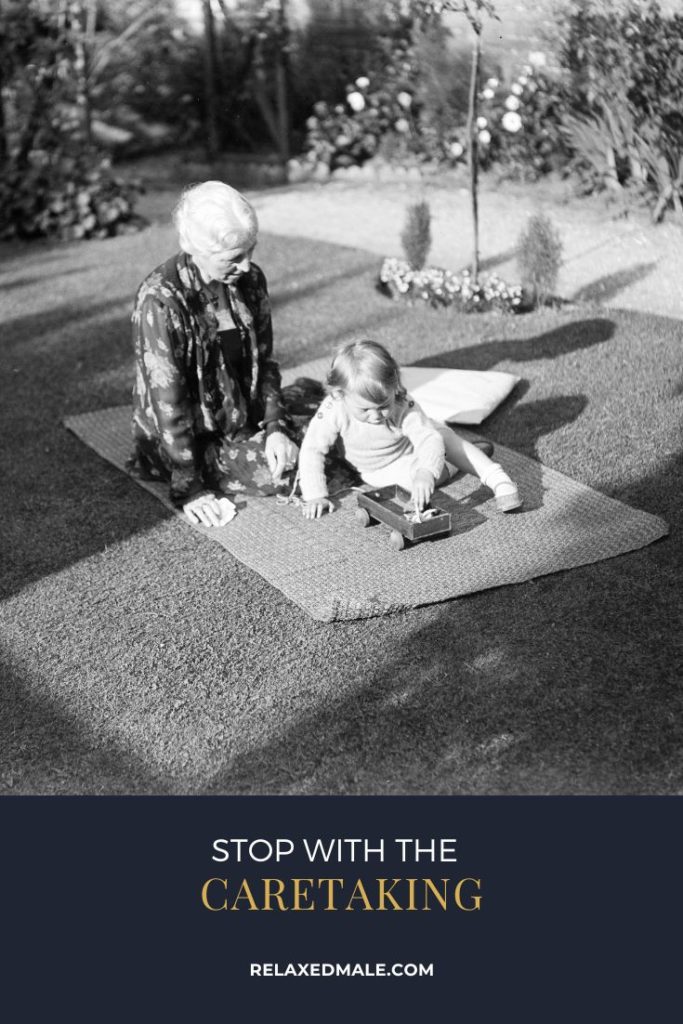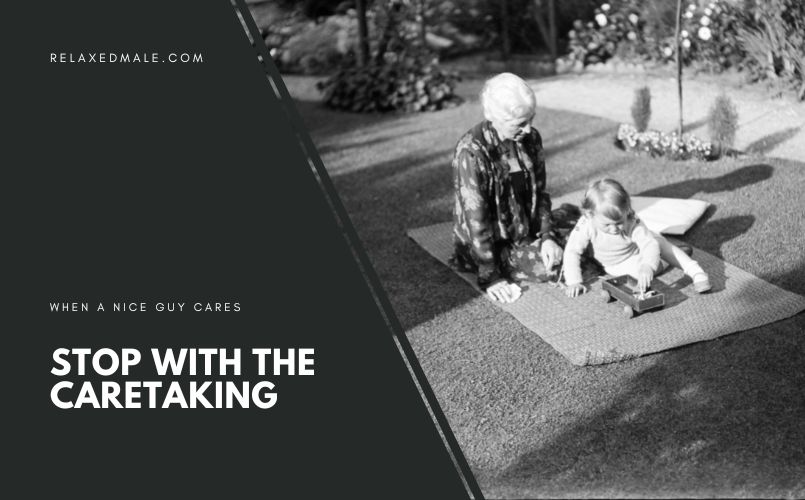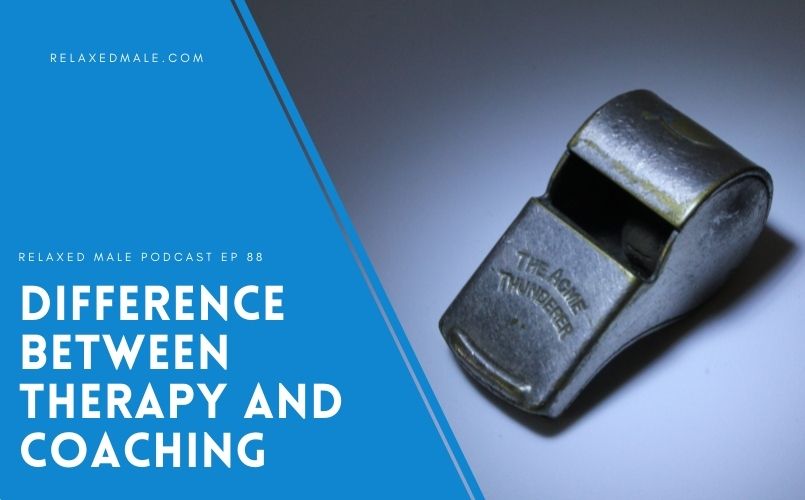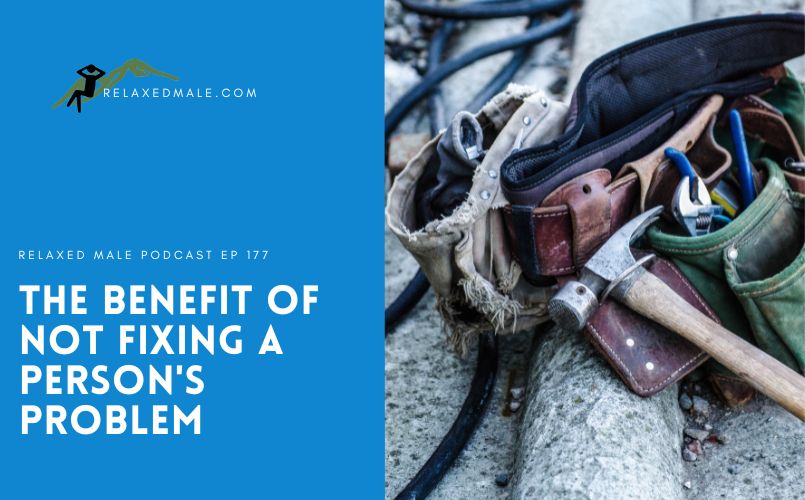There are two types of people out in the world one is a caregiver and the other is a caretaker. Yes, there is a difference between the two. Many people take the two to mean much the same thing. Yet they are very different in very drastic ways.
The difference between Caretaking and Caregiving
The biggest is in the words. Are you giving a person care or are you taking care of a person? Are you still not seeing the difference yet? Ok, let’s break it down a bit more. When you are giving you are coming from a place of abundance.
While taking is coming from a place of scarcity. Now, are you seeing a difference? While caretaking sounds good on the surface like most things with a nice guy or a people-pleaser they appear nice but there is a lot of control and manipulation going on underneath.
So let us take a deeper look at the differences.
Why caretaking is bad
Yes, I did go on ahead and say it. Caretaking is bad. Not only for the person who is the target for the caretaker but the perpetrator too. How many people do you know who come running to the rescue the instant they are called? Now, this isn’t the 3 a.m. list I talk about.
Maybe you know or possibly you are the guy who likes to be the knight in shining armor. That man who rides in to rescue the damsel in distress. How often does that work out? Rarely if ever. Why? Because that guy is looking to beagle to take care of that damsel in distress, but all he ever winds up with is a distressed damsel.

These men wind up feeling frustrated and exhausted, maybe even resentful at the lack of gratitude for what they are sacrificing for their women or other subjects. All that and no time to be able to do anything that fulfills their own needs.
Caretakers want to feel important
Well, don’t we all? Yet to force yourself into a situation so that you can feel important is where the problem comes in. When you take on more than you can handle so that you can be seen by the other people as being important.
We all are important in some way to other people. Yet Caretakers go out of their way to create more suffering on their part and sometimes almost to the point of being Munchausen Syndrome by proxy. That syndrome is actually a very extreme form of caregiving. Both people with Munchausen and Caregivers do what they do for the very same reason. They want to feel important to somebody or to appear important.

Caretakers want to be seen as the good guy
This is the modus operandi of a Nice Guy. They want to have others see them as good people, and yes they truly want to be liked. Yet a caretaker will do things for appearances that an upstanding man would not do.
So if you are sacrificing your mental health or physical well-being for your mother who is getting along in years, or even a partner who may need some assistance. A caregiver will take that circumstance and turn it into this big huge thing, not for their partner’s benefit but their own.
Would you share all the dirty laundry that is going on if it made you look like you were being a good guy? To a caregiver, Oh yeah. They will obliterate any privacy lines just so they can hold up that victim card and show people how much they are suffering for their loved ones.
To be a marter
Along with suffering, they will also do their damnest to show people they are willing to be martyred for their cause. This isn’t some noble cause they want people to feel sorry for them and is a form of manipulation. They want to control the narrative so that there isn’t any bad light being shown upon them.
This means they will often make the life of people harder than it needs to be. Simply for the reason that they don’t want to be seen as succeeding. They almost literally shot themselves in the foot so that their life is harder than it needs to be. They will agree with whatever is told to them but they won’t carry through simply because they may not have the control they want.

Caretakers want to feel needed and of use
One part of being a man is being useful. We get our sense of purpose from how much of a hand we can be. Yet for a caregiver that’s the case but only if to put on airs that they are needed. They want that sense of being needed and the person who is being taken care of is just there for the show. They are being used for appearance.
Caregivers want the feeling without the work. They want to have the rewards without the chance of failure. So the caretaker will show people and tell the person being taken care of how much the caretaker is needed. You see they tell people how much instead of letting people decide for themselves.
Caretakers want to be the fixer
This is a classic nice guy tactic. They want to fix a problem and not let the other person figure out a solution. The Caretaker will do everything for the person they are caring for. They will not let that person have a chance to live their life on their own terms. Why? Because then they have no control over the results.
What happens if the target of the caretaker finds out that they aren’t needed? That is a scary thought for any people pleaser. They aren’t needed or have been used in someone else’s eyes. If the patient can fix the problem themselves then the caretaker is out of a job. They are not needed and then uncertainty. This is scary for nice guys and caretakers alike.
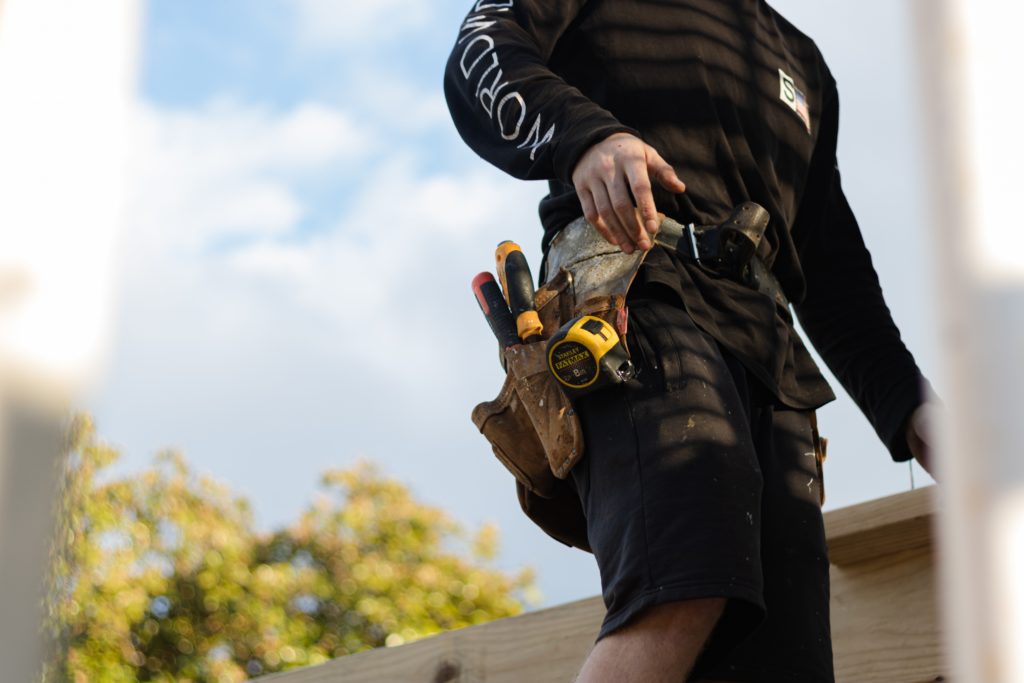
Caretakers like the power
Caretakers often don’t see themselves as having any power. This is from the scarcity and victim mindset they often operate in. So what they will do is find someone they can “help”. This allows them some semblance of control and power over another person.
However, if you are aware of history people don’t like to be lorded over. This is where so much frustration and resentment crop up. The person being cared for often realize what they can and can’t do. So when the caretaker swoops in and helps the other person this just amplifies the frustration. Resentment starts to really boil and then when the cared-for finds their voice then the caretaker is in real trouble.
So the caretaker has to find ways of reasserting power. Examples of this are showing up all over the place online. Those Karen videos that are popular to see, are examples of people feeling powerless and wanting to wrench power where ever they can. They want to feel powerful it is a need that people with a scarcity mindset need and so they have to take it.

Caretakers refuse to accept boundaries
Another reason that being a caretaker is not a good thing is that caretakers do not respect boundaries. They will do and say whatever they need to to be able to feel useful, powerful, needed, and to be seen as a good guy. The boundaries of the person they are caring for will not be respected.
This is because again they do respect a boundary they see themselves as not having control of the situation. That other person has control over their life and nothing is scarier to a nice guy and a caregiver than the lack of control. Because without control, you have no means of manipulation.
Caretakers can’t say no
LIke nice guys caretakers also can’t say no they will ride into any situation so they can rescue someone. Again because they have to have that image of being a caring person. They are going to rush headlong into a situation without actually knowing why that situation is there. They will often rescue the person and try to fix their life
There is a song that fits this called Broken Girls by Gabby Hanna That talks about guys who go towards Broken girls for the whole fact that it is easier to fix them than themselves. That is a huge problem with caretakers is that they have their own thought work that needs to be worked through. Instead of working on themselves, they work on others for the small easy bump of dopamine. Instead of a huge bump of serotonin that they would get from working on themselves.

Why don’t they work on themselves? That is because they see it as being selfish. Which is in reality completely backward. How are you able to help others if you aren’t willing to work on yourself?
Caretakers attract frustration and Resentment
This is a two-way street. Both parties, the caretaker and the person being taken care of become extremely frustrated and resentful of each other. The caretaker could almost be viewed as a toxic element of humans that could produce a toxin. They can’t so they aren’t but they are the root of the frustration in their own lives.
How do they make their frustration? Because they expect to be told how wonderful they are for doing such hard work. The person they are caring for should be grateful for all the time and effort they put into caring for them.

As I mentioned earlier Caregivers and nice guys have to control the situation. They don’t want the person who is being taken care of, to be able to care for themselves. Even when they want to be independent. The Caregiver very much wants a co-dependent relationship. The caregiver needs to have that other person so that they have a sense of value. When the other party wants to do stuff themselves they start to become frustrated and resentful of the caretaker.
Because they are resentful and do not give the caregiver the affirmations they require the caregiver becomes resentful and frustrated that he isn’t getting himself validated. You see how this becomes a vicious cycle and also is a good reason for interdependent relationships.
Caretakers are Codependent people
Caregivers rely on a codependent relationship. This is where each person relies on the other for validation. Each person gets their self-esteem and self-worth from the other person. The problem results when that person realizes that they don’t have to have that other person to find their self-worth. When this happens that is where fear and jealousy come creeping in. They start doing things to sabotage the relationship. Then everything devolves into a cycle of hurt feelings and grudges,
Why Caregiving is Good
So with caregiving, the word is the opposite of a caretaker. You can take every subject we just talked about and apply the opposite to it and you see why giving a person a reason to care is better.
- There is the Interdependent factor
- Encouragement and accepting factor
- Caregivers can say no and often do it for their own benefit and the person they are caring for.
- Appropriate and healthy boundaries set
- No need to try to gain power a Caregiver knows their power comes from themselves, not anybody else.
- There to assist not fix
- Don’t need others to know when they are needed
- Refuse to sacrifice themselves for the sake of others
- They are independent people. They know they can’t control the emotions of others.
- They get satisfaction from what they do not from what other people see

As you can see the caregiver gives the person a reason to care about themselves. They aren’t reliant on others’ approval and could care less about accolades. They do what is needed not for the trophy but because it is needed. Caregivers do so out of an abundant mindset and love. While a caretaker acts out of scarcity and fear. A caretaker takes away from their person any reason to care.
One of the great things about caregivers is that they cheer their charge on. They celebrate each small win. They want the person they are helping to become better and stronger and they will be happy when they are not needed anymore.
How to stop Caretaking
While you can find many ways to stop caretaking, for instance, You could do the list that makes a person a caregiver. Yet before you start doing the easy stuff you need to do the hard stuff. The stuff that you will find incredibly selfish. Why? Because it is all about you and what you think. Yes, you need to do a lot of thought work about why you take people’s care?
Start asking why
IF you start asking one of the most important questions you could ask yourself, you can allow yourself to really get curious about why you do what you do, You will start to find out why you think you are a victim and why you don’t have enough.
Ask yourself these questions
- Why is it easier to take care of others than for yourself?
- Why do you believe it is selfish to focus on yourself?
- Is this a relationship of love? If you answer yes then ask this
- Why do you feel frustrated? – Love isn’t frustrating. Control is.
- Why do you believe you have to rescue everybody you meet?
- What if they don’t want to be rescued?
- Do you enjoy the feeling of overwhelm?
With each question, you can ask why to that answer and dig deeper and deeper. You will eventually get the answers boiled down to the basic instance. When that happens you can start to change your results by changing your actions. Because remember your thoughts lead to your results.
